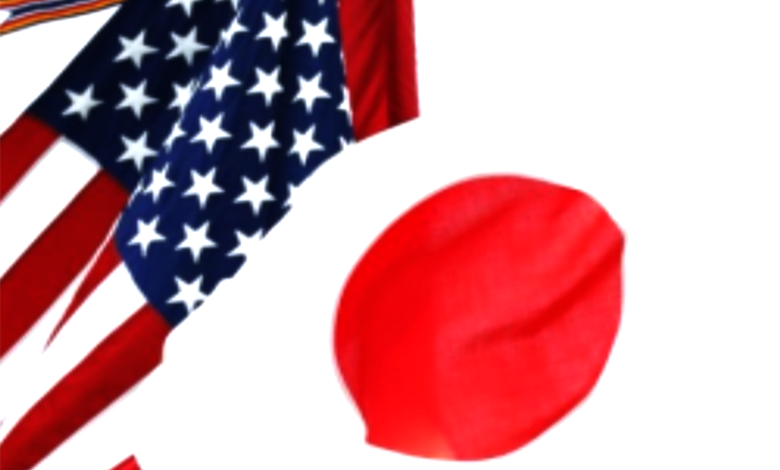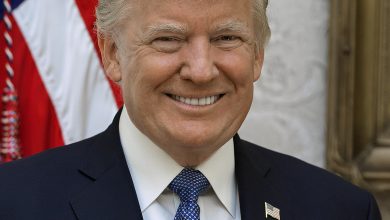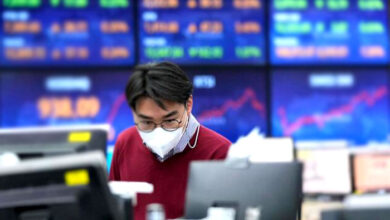The United States has reduced tariffs imposed by President Donald Trump on Japanese steel.

WASHINGTON: The United States will reduce tariffs on steel imported from Japan, authorities announced on Monday, in the latest effort by President Joe Biden’s administration to address trade conflicts that began under his predecessor, Donald Trump.
Beginning in April, Japan will be allowed to pay reduced taxes on steel shipments to the United States of up to 1.25 million tonnes per year.
The ruling repeals the 25% tariffs that Trump slapped on metal imports from the country and others in June 2018, citing national security concerns.
The disagreement with Japan was one of several Trump launched during his presidency that Biden has attempted to resolve, and it follows an accord achieved last year by Washington to halt metal tariffs on the European Union.
“The agreement we reached will strengthen America’s steel industry and ensure its workforce remains competitive, while also increasing access to cheaper steel and addressing a major irritant between the United States and Japan, one of our most important allies,” Commerce Secretary Gina Raimondo said in a statement.
The pact, according to US Trade Representative Katherine Tai, would “protect an important American industry, our employees, and their families,” as well as level the playing field with China.
“This agreement, together with last year’s resolution with the European Union, will assist us in combating China’s anti-competitive, non-market trade practises in the steel industry, while also assisting us in meeting President Biden’s ambitious global climate agenda,” she added.
However, the agreement does not settle all of the two nations’ unresolved trade disputes.
Levies of 10% on Japan’s aluminium exports will stay in place for the time being, while the new tariff scheme covers less than the 1.8 million tonnes of steel imported by the US from Japan in 2017, the year before the levies were imposed, according to Commerce Department statistics.
Japan’s foreign minister, Yoshimasa Hayashi, told reporters on Tuesday that the US “had taken no actions to resolve” aluminium tariffs.
He said that Japan welcomes the statement regarding reduced steel tariffs as a “step forward,” but that the nation would “continue to urge the US for comprehensive settlement” of the situation.
‘Melted and spilled
The Alliance for American Manufacturing applauded the deal, particularly a clause requiring imported steel to be “melted and poured” in Japan to prevent other countries from transshipping their metals via the country.
Scott Paul, president of the trade organisation, said Biden’s decision broadened “the focus on global overcapacity, while keeping proper instruments to counter threats to our economic and national security.”
Trump’s Republican government had a number of trade squabbles with both allies and rivals, many of which remained unresolved when Biden assumed office in January 2021.
Tariffs of 25% on steel and 10% on aluminium imported from a number of nations, including the European Union and Japan, were among them.
According to World Steel Association data, Japan and the United States are among the world’s top steel producers, trailing China, the European Union, and India.
At the time, opponents said that Trump’s decision was based on national security concerns, while the levies strained relations with Brussels and other allies.
Last October, the Biden administration reached an agreement to reduce EU metals tariffs, and last month announced a deal to restart trade in mussels, clams, oysters, and scallops after a decade-long standstill.
Last June, the United Kingdom and the United States agreed to postpone retaliatory tariffs imposed during a 17-year battle over state subsidies for European planemaker Airbus and US competitor Boeing, and they also agreed to hold talks last month to address their disputes over metals tariffs.
The US Chamber of Commerce’s president of international affairs, Myron Brilliant, praised the Japan agreement but said Washington needed to do more.
“The United States should abandon the false claim that metal imports from the United Kingdom, Korea, and other close friends pose a threat to our national security, as well as the tariffs and quotas,” he said in a statement.





